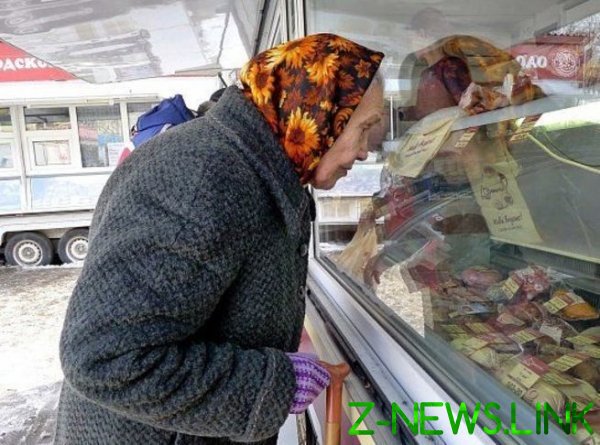
Accumulation of Russians in February 2019, according to Rosstat preliminary estimates, fell by almost 2.4% as compared to January and made up of 32.88 trillion rubles. The volume of savings exceeds the level of December of last year — then had accumulated 32,31 trillion rubles.
As before, Russians prefer to keep money in Bank deposits: their balances in February was 21,79 trillion rubles (66,3% of the total savings).
At the same time, the share of savings in cash has declined in comparison with January by 0.4 percentage points to 18.4% (6 trillion rubles), while the share of investments in securities increased to 5 trillion rubles.
Premonition did not disappoint
According to experts, the population in 2018 moved from savings behaviors to the consumer. The Russians made purchases of household appliances, electronics and other goods, costly in terms of money.
The purchase of durable goods a population is delayed from the acute phase of the crisis in the years 2014-2016, and last year such purchases finally was produced. Moreover, durable goods Russians were buying, even on credit.
It was really necessary to catch up to the acceleration of inflation. And she began to fear, after it became known that VAT will increase from 18% to 20% in 2019.
“In 2018, the growth rate of lending to individuals significantly outpaced the growth of deposits”, — said Anastasia Sosnova, an analyst at “freedom Finance”.
In addition, in the past year has intensified the concerns of our citizens about the deterioration of the economic situation in the country in 2019.
As can be seen from published statistics now, negative premonitions about inflation this year did not disappoint Russians.
On Wednesday, the Minister of economic development of Russia Maxim Oreshkin during a speech in the state Duma said the forecast for inflation in 2019, linking it with economic growth. According to him, the Agency has retained the forecast for GDP growth of 1.3%. Inflation will be 4.3%.
“Accelerating inflation and the slowdown in economic growth will be temporary … if we talk about the year as a whole, we still expect GDP growth at 1.3%, inflation is at 4.3%,” said Oreshkin.
The ruble at the same time, on the same forecast of economic development, will weaken.
. Lowered its forecast for the ruble in 2019 from 63.9 to 66.4 rubles. for dollars. “The evaluation of the course we barely make weaker relative to the previous forecast, we expect the dollar at RUB 66 in an average year,”— said the Minister.
He attributed this to the pressure of the sanctions, adding that the deterioration in the Outlook “largely associated with changes in the Euro-dollar, than with some internal factors”.
“The sanctions story, which compared to the previous forecast has increased, does not allow to hope for any dramatic strengthening of the ruble from the current levels,” concluded Oreshkin.
Save nothing, but I want to spend
In the years to come our countrymen will be forced to return to savings behaviors, says managing partner expert group Veta Ilya Zharskiy. It will affect a number of factors: reduced income levels, denial by the government from a number of benefits and subsidies, changing taxation.
“In January, the inflow of savings from the Russians could be related to the fact that people posted received additional annual monetary payments (premiums, bonuses, compensation for unused vacation, etc.). In February was assessed in January revenues, and in January they are traditionally more modest, as in January, less working days,” explains mark Goikhman, head of group of analysts, analysts and financial technologies (CAPT).
For example, nominal wages for short working January fell by 26% compared to December, and real (inflation-adjusted) — 26.7%, according to the same Rosstat, says the expert.
Loans eat up savings
January this year was calm in connection with the shutdown in the US and strong growth in oil prices.
But when the US and the EU have again started talking about restrictive measures against Russia, there was a wave of capital outflows from the banking sector.
In this regard, the outflow and Bank deposits, says Gaidar Hasanov, expert of the “International financial center”.
The decline in the share of savings must be compared to the fall in real incomes. They are reduced for the fifth year continuously, experts remind.
“We must also understand that money is lost from the population when servicing loans, as to maintain the standard of living, they have to increase the debt burden. If last year the cost of goods and services was on average 77% of the income of the Russians, a year earlier, the figure was 75%,” concluded Hasanov.
© 2019, paradox. All rights reserved.





